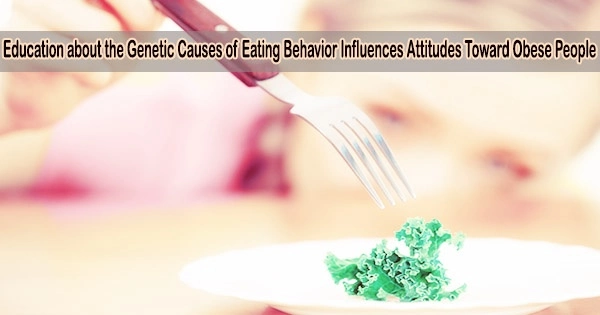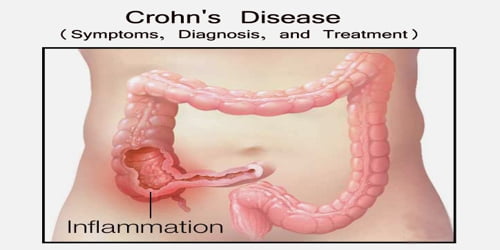Eating behavior is a complex trait influenced by a variety of genetic and environmental factors. Some genetic factors have been identified that contribute to the regulation of eating behavior. Education about gene-by-environment interaction (G X E) causes of eating behaviors can have beneficial downstream effects on attitudes toward people with higher weight.
A recent study published in Elsevier’s Journal of Nutrition instruction and Behavior discovered that participants who received instruction about G X E ideas expressed better empathy and fewer stigmatizing views toward people who were overweight. G X E is when two different genotypes respond to variations in the environment in two different ways.
“Discriminatory attitudes against people with higher weight have been observed at comparable rates to racial and gender discrimination and are often more overt because weight stigma is viewed as a more socially acceptable form of negative bias,” says corresponding author Susan Persky, PhD, Social and Behavioral Research Branch, National Human Genome Research Institute, National Institutes of Health, Bethesda, MD.
“However, weight has a sizable genetic component. Our study found that increasing education about the role of genetics in eating behavior may therefore help to alleviate weight stigma by reducing the extent to which individuals are blamed for their weight.”
Participants were recruited through the online platform Prolific and were randomly allocated to either an educational or a control video to watch. Following that, participants watched a series of vignette scenarios depicting what it’s like to be predisposed to obesogenic eating behaviors from either a first-person or third-person perspective.
This research provides initial evidence that future educational interventions may benefit from focusing on eating behaviors, specifically, when attempting to improve attitudes toward people with higher weight.
Alison Jane Martingano
Following the intervention, participants completed questionnaires assessing G X E knowledge, causal attributions, weight stigma, and empathy.
Participants who saw the educational film displayed stronger G X E knowledge, indicated greater empathy for the characters in the vignette scenarios, and had fewer stigmatizing views (particularly blame) against people who were heavier.
Exploratory mediation studies revealed that the educational film increased the amount to which individuals linked genetic origins to eating patterns, resulting in these positive downstream effects.
One of the most well-known genetic factors associated with eating behavior is the FTO gene. This gene has been linked to obesity and an increased risk of overeating. People with variations of this gene may have a higher tendency to consume high-calorie foods and overeat, leading to weight gain.
Communicating the G X E reasons of eating behaviors to the general population can help to alter attitudes toward those who are overweight. As a result, the scientists believe that similar G X E education may be widely distributed as part of public health initiatives.
Furthermore, a better understanding of these concepts may aid in the improvement of patient-provider interactions regarding healthy eating and weight.
“Focusing on G X E causes of eating may help tackle entrenched weight stigma among the general public and health care providers,” suggests the study’s lead author Alison Jane Martingano, PhD, National Human Genome Research Institute, National Institutes of Health.
“This research provides initial evidence that future educational interventions may benefit from focusing on eating behaviors, specifically, when attempting to improve attitudes toward people with higher weight.”
















